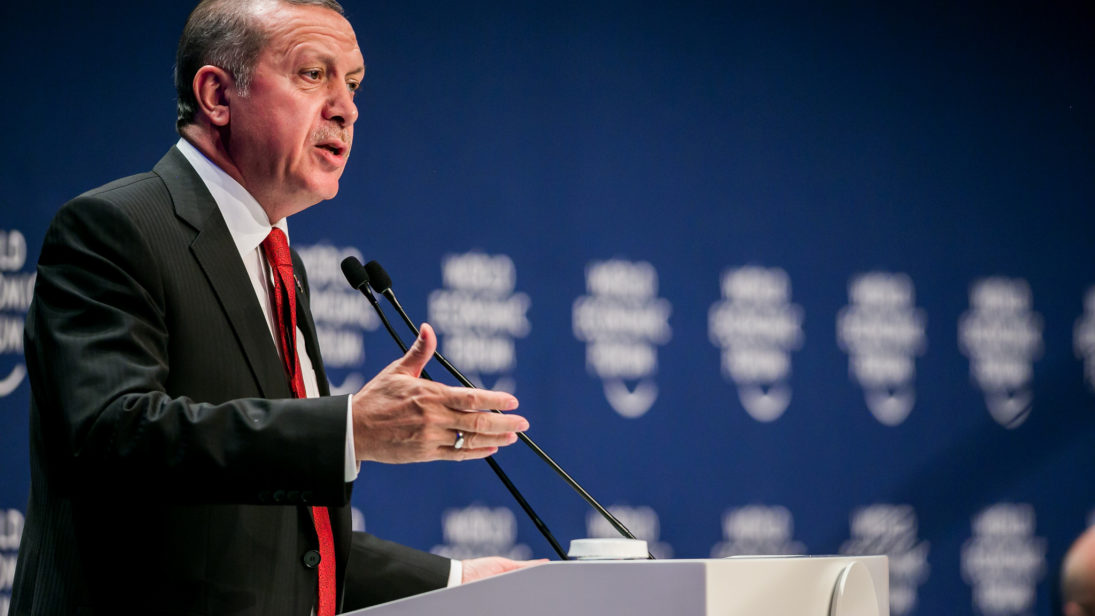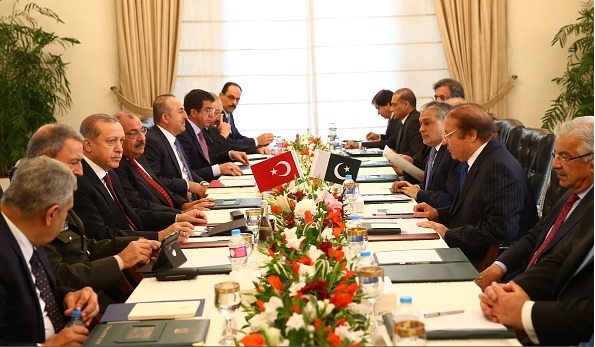
On a two-day visit to Pakistan last week, Turkish President Recep Tayyip Erdogan addressed a joint session of the Parliament for the first time since parts of the Turkish military unsuccessfully attempted to overthrow his government. The high-profile visit comes at a time when Pakistan is facing serious challenges, particularly in the context of the Indian desire to diplomatically isolate Islamabad. In such circumstances, the Turkish president’s visit was crucial and promising. As the first foreign leader to address Pakistan’s parliament thrice, President Erdogan has opened a new chapter in the Pakistan-Turkey bilateral relationship with promising prospects for economic, defense, and strategic ties.
During the visit, Pakistan and Turkey signed a joint communique formalizing their intent to enhance bilateral ties in diverse sectors. Both countries agreed to establish “a comprehensive, long-term and forward-looking framework for defense cooperation,” and to transform their special relationship into a “strong strategic partnership.” President Erdogan also stated that his country aims to increase the trade volume with Pakistan to $1 billion, and both leaders pledged to finalize a comprehensive bilateral free trade agreement by the end of next year. Pakistani Prime Minister Nawaz Sharif also recently invited Turkish companies to invest in Pakistan’s transportation and infrastructure sectors and benefit from Chinese investments into Pakistan through the China Pakistan Economic Corridor (CPEC).
Turkey’s growing defense cooperation with Pakistan is a strong indication of the warm relations between the two states. Pakistan and Turkey conducted a joint naval exercise in the North Arabian Sea last month to enhance interoperability and maritime security, and there is a possibility of more joint military exercises in the future. Turkish firms have already agreed to upgrade the Pakistan Navy’s three Khalid-class submarines, and Turkey has already provided Pakistan with 34 T-37 aircraft. And this week, Pakistan agreed to provide 52 Super Mushshak training aircraft to Turkey. There is ample room for cooperation to further develop between Pakistan and Turkey, particularly because both countries are witnessing high levels of militancy and violence.

More broadly, Pakistan and Turkey have historically worked with solidarity on a number of global issues. Turkey recently supported Pakistan’s bid to join the Nuclear Suppliers Group (NSG), a 48-member international nuclear trade organization. Turkey also backs Pakistan’s position on the Kashmir dispute. During the recent visit, President Erdogan also condemned the terror spread by Daesh and Al-Qaeda in the name of Islam, and praised the sacrifices of both Pakistan and Turkey in countering extremist groups. Finally, during his recent visit, President Erdogan called for better relations between Afghanistan and Pakistan, terming them “vital for peace and security” in South Asia.
For its part, Pakistan has also demonstrated its desire to maintain cordial relations with Turkey. Pakistan strongly condemned the attempted military coup against President Erdogan’s regime, describing it as an “attempt to undermine democracy” in Turkey. In a bid to further appease President Erdogan, staff members of Turkish schools and colleges in Pakistan linked to Fetullah Gulen, a political enemy of President Erdogan living in exile in the United States, were asked to leave Pakistan.
President Erdogan’s visit to Pakistan has opened a new chapter in the bilateral relationship, which has been nurtured by decades-old cultural, religious, and geo-political connections. The two countries share similar views on contemporary challenges faced by the Muslim world ranging from deadly militant attacks to inter-state differences. As both countries deal with severe threats from extremist groups, it will grow more important for both to cooperate and jointly condemn militant organizations that use Islam as a cover for their brutalities, especially in the backdrop of rising global Islamophobia. Pakistan and Turkey must especially work together to address this issue in order to promote stability and improved inter-faith harmony in the Muslim world.
***
Image 1: World Economic Forum, Flickr
Image 2: Andalou Agency, Getty Images


